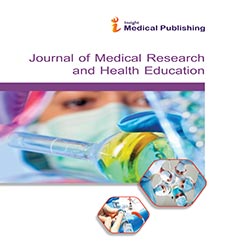How Nurses Can Use Neuroscience and Religion to Help Patients
Senior Professor of Neuroscience, Texas A&M U, College Station, TX 777843. U.S.A
Abstract
“Mind over matter” is an ancient cliché that has awesome power to heal sickness. Historically, this effect is best known in terms of placebo effects and religious faith healing. A new relevant field of scholarship is emerging known as neurotheology, a merger of neuroscience and religion. To date, the field has been dominated by experiments involving brain imaging during various kinds of religious thought and practice. In my published “Whither Neurotheology” critique of the field’s future, I raised concerns over such limited scope and suggested that the field’s major promise is in practical application. For example, neuroscience and religion have numerous shared areas of concern about both bodily and mental health, and each worldview can and should inform and enrich the other. Neuroscience, mental health, and religion can synergistically contribute to healing of sickness. Such applications that nurses can use involve four conditions common to many illnesses and hospitalization: stress/anxiety, depression, learned helplessness, and loss of will to live. I summarize how each condition impairs healing. Countermeasures that nurses can provide in the clinic or hospital include: 1) show a positive and encouraging attitude, 2) reduce the causes of distress, 3) teach patients mindfulness meditation, 4) encourage prayer, 5) facilitate social opportunities, 6) give tender touch, and 7) allow more uninterrupted sleep. Additionally, I urge nurses to lobby for transforming hospital environments to be less intimidating and demoralizing. I also urge nurses to partner with chaplains and visiting clergy, counseling them as needed to avoid any religious assertions that likely have negative effects on illness. Finally, effective nursing requires nurses to nurture themselves in body, mind, and spirit.

Biography
Bill Klemm is a Distinguished Alumnus of Auburn University and a Distinguished Member of Sigma Xi, The Scientific Research Society. He has served on the official Editorial Boards of twelve scholarly journals, and editors of 45 research journals have asked him to peer review over 500 manuscripts. He has authored over 250 peer-reviewed papers on a wide spectrum of topics ranging from molecular models of membrane function to human cognition. He has written 55 book chapters and has authored 21 books. He also writes science blogs for Psychology Today, whose editors have tagged many of his posts as “essential reads.” See more at WRKlemm.com.
Publications
1. Accommodating religion to modern neuroscience
2. Why Does REM Sleep Occur? A Wake-up Hypothesis
3. Free will debates: Simple experiments are not so simple.
4. Behavioral arrest: in search of the neural control system.
5. Coherent EEG Indicators of Cognitive Binding during Ambiguous Figure Tasks
Open Access Journals
- Aquaculture & Veterinary Science
- Chemistry & Chemical Sciences
- Clinical Sciences
- Engineering
- General Science
- Genetics & Molecular Biology
- Health Care & Nursing
- Immunology & Microbiology
- Materials Science
- Mathematics & Physics
- Medical Sciences
- Neurology & Psychiatry
- Oncology & Cancer Science
- Pharmaceutical Sciences
